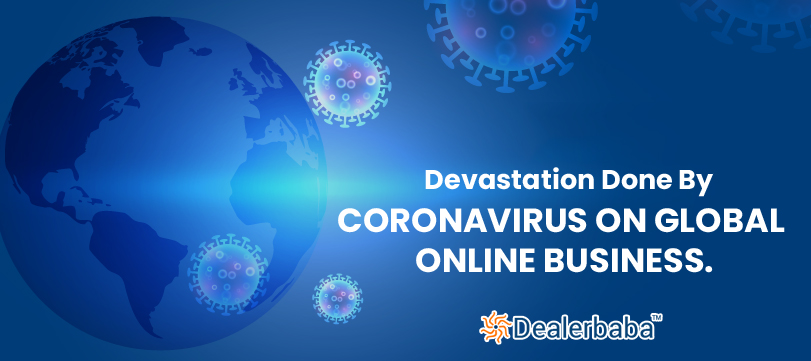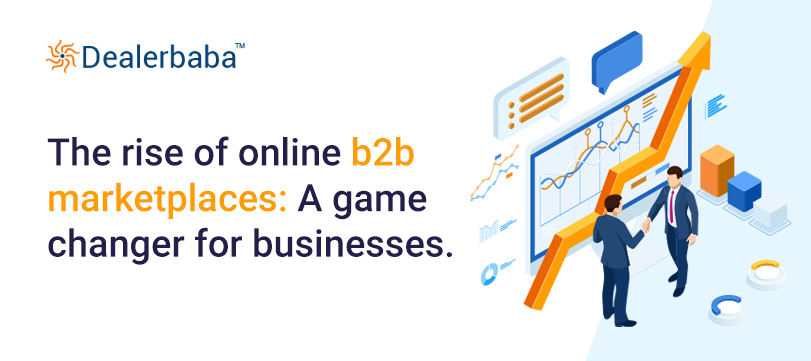-
Advertising / Agriculture / Apparel & Clothing
-
Architecture / Art & Craft / Automobiles
-
Bags & Shoes Accessories / Spare Parts / Books & Stationery
-
Business Services / Mobile Accessories / Computers & Laptops
-
Construction / Contractors & Freelancers / Education & Training
-
Electronics / Engineering / Environment
-
Event Planner / Fashion & Beauty / Financial
-
Gifts & Toys / Handicrafts / Health Care
-
Home Appliances / Hotel & Restaurants / Industrial Chemicals
-
Machinery Equipment / Information Technology / Jewelry
-
Kitchen / Instruments / Leather
-
Packaging / Personal / Plastic Products
-
Recruitment / Rental / Restaurants & Beverages
-
Security / Telecommunication / Tour & Travels
-
Transportation / Wooden Furniture
-
Devastation Done By Coronavirus On Global Online Business
13 Apr 2020 /
In many countries, pandemics generally top the national risk management frameworks. For instance, you can take the influenza pandemic that topped the natural hazardous matrix in the UK national risk register. It is also encouraged to deal with emerging infectious diseases that are tagged to be one of the considerable concerns.
Each of the outbreaks of any potentially dangerous infection gives rise to authorities looking for plenty of rational set of questions for being medical emergencies. By asking those questions, they also dust off the response options, which can be implemented in an organized manner based on the requirements.
However, reality is way more disruptive because national authorities and supranational agencies balance the health security, social and economical imperatives on the back of evolving intelligence. It's known to be a governance challenge that might result in long term consequences in communities as well as in organizations. Along with all these, they require accommodating human behavior.
Dilemmas Organizations Face
Now, the Covid19 is no exception and this epidemic has become a global pandemic as it has emerged in a densely populated central China. The pandemic has also spread to other countries globally.
To mention another emergency, the Western African Ebola in 2013 - 2016 was way more deadly but less contagious. That was more isolated but contained in parts that let rich countries donate money to Africa.
Currently COVID - 19 presenting a way larger, interdependent economical situation along with various management conflicts. This pandemic has surfaced at a time that's creating trusts to erode among countries while keeping national authorities under pressure from social and economical confrontations among supreme powers.
Highly effective governance in cross border crisis including pandemics that involve response, recovery, and preparation at local, national, and of course in international levels. Preparation about epidemic assessments show various countries where pathogens might emerge are not well equipped to diagnose, report, and prevent the outbreaks.
Since the Ebola epidemic of West Africa in 2014 - 2016, considerable progress has taken place but the entire health systems globally are under prepared for significant outbreaks of other infectious diseases. In short, it can be stated that no country is completely prepared to fight an epidemic or pandemic.
A Few Cover-Ups On Governance Failure
The strategy of epidemic responses varies based on the country. According to their capabilities, they will think of playing up or down and staying up for business as long they can or will seek to reopen as quickly as possible after the crisis. COVID - 19 has highlighted certain tendencies in several countries that are encouraging them to deny or to cover up red flags to avoid penalties whether that is economic or political.
However, these approaches can easily go wrong.
Around the world, millions of workers are in quarantine and a short part of them are in supplying our daily required items. Countries with well honed arrangements of risk management are actually giving a tough fight to this pandemic by slowing down the spread of infection. But, this doesn't make them immune to political and economical pressures.
COVID - 19 has also encouraged the way governance failures involving inaction or the over zealous actions with not prepared authorities, which are scrambling to hold on the maintenance or to regain their stability on the international market.
Both of the ends of this spectrum undermine the trust along with cooperation among citizens and countries. Incorporated control measures can seem required in order to stop or to delay the virus spread and compensate for people who have low immune systems.
Those who are under lockdown are being stigmatized due to mass quarantine in cities or in cruise ships and this is actually evoking the risks of mental health as people are experiencing stress, isolation, and anxiety. Ban on traveling is resulting in social, political, and economical penalties and this is ultimately discouraging individuals along with government personnel from sharing details and disclosing any kind of similar future outbreaks.
The systems are overwhelmed and it causes it to suffer from limiting the infection spread or to cope up with the requirements health care structures have.
Panic Spreads Quicker Than Pandemic
It is very much true that panic spreads far quicker than the pandemic and social media platforms fuel the fire mostly. In most of the cases while spreading the news, social media platforms generally amplify the uncertainties and wrong information. For instance, information like anecdotes, data on the pandemic, or some rumor that can boost fear in people.
On social media platforms, people seek attention badly and that is the reason they make mean wrong content. These fears will fray the trust citizens have on the government as they think the authority of that country has loosen it's capabilities of protecting the citizens. Eventually such fears can destroy the measures of the psychological defensive system in people.
Impact The Pandemic Has On Business
The time a stringent policy response is required, organizations will be impacted deeply in both short and long term consequences. In various countries, traveling and quarantine are affecting millions of people. Those who work in factories are leaving their work to be with their families.
This is causing disruption in supply chains while triggering warnings against sales across various sectors including automotive, technology, consumer goods, pharmaceutical and in other industries as well. Due to this violation in production, the commodity prices are declining to fall.
The entire thing will ripple throughout the development and on the emerging markets that have high dependencies on that particular country respectively. Be it in the form of trade, investment, or in the tourism sector.
Most of the Asian and African countries lack diagnostic, hospital capacities, and surveillance in order to identify, quarantine, and treat patients accordingly during this Coronavirus outbreak. In this condition, weak health care structures can be a risk to offer proper security and this will cause social and economical consequences.
Why Organizations Should Invest In This Pandemic Resilience?
Both epidemic and pandemic are known to be standalone risks for organizations. But in the long run, COVID - 19 can serve another reason while providing protection and requirements for energy efficiency. These will help companies to reassess the supply chain exposure for outbreak prone areas and this is helpful in reconfiguring the systems regionally.
Organizations have to contend with the intensifying risks of economical, political, and health security. Apart from standard organizational concerns including operational continuity, protection for employees, and preservation in the market, organizations and countries should pay more attention to the exposure to compound the effects of this pandemic.
Once the COVID - 19 is contained, the panic and neglected cycle of the pandemic preparedness, most parts of the world is likely to remain under prepared for the next outbreak. Organizations that generally invest in operational, financial, and strategic resilience of these emerging risks globally will be positioned in a better way to be prepared, respond, and to recover.
Related Post
Explore Your Business Globaly By Listing On Dealerbaba
Add your business get multiple quotes
get multiple quotes
















Leave a Reply
Your email address will not be published. Required fields are marked *